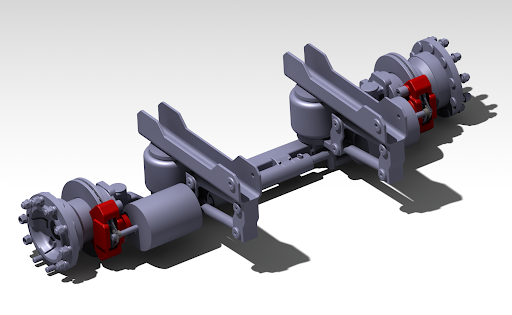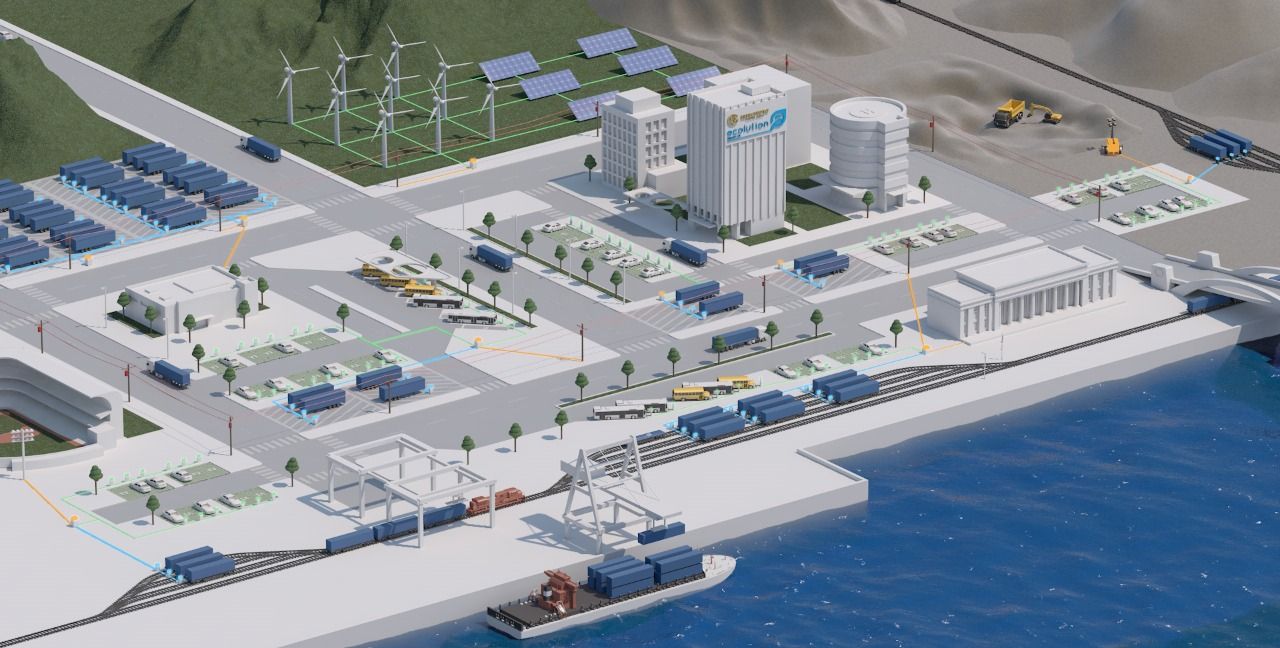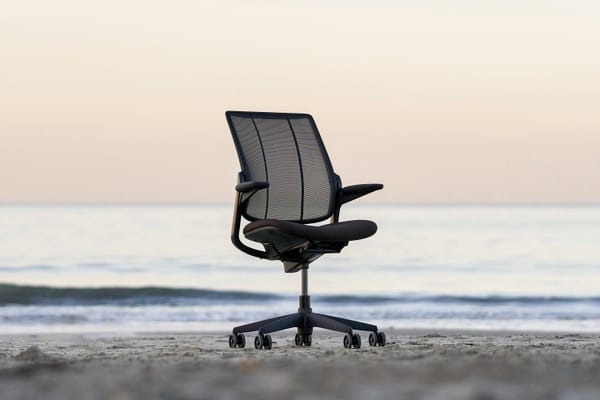Ecolution Drives a New Clean Energy Source
Innovative startup Ecolution is capturing kinetic energy from vehicles and turning it into clean, movable power.

The renewable energy revolution is in motion…literally, if Ecolution KWH has anything to say about it.
As much as solar and wind power, along with innovations like electric vehicles, have captured headlines, we’re still a long way from a net-zero world.
In 2021, renewables accounted for just 12.2% of U.S. energy consumption, according to the U.S. Energy Information Association (EIA). Even the move toward electrification has limitations in the sense that fossil fuels still provided over 60% of electricity generation in the U.S. last year (mainly natural gas and coal), based on EIA data.
Meanwhile, existing grid infrastructure isn’t necessarily equipped to handle modern demands, including a shift in energy sources.
But Ecolution, a Naples, FL-based startup, is solving these problems through a largely untapped source: kinetic energy from vehicles.
Power Moves
Kinetic energy is created by an object in motion. Wind turbines, for example, capture the kinetic energy of wind. But many human-made objects, like vehicles, also generate kinetic energy, regardless of whether that motion comes from petroleum or an electric battery.
That’s where Ecolution comes in. The company’s patented Module Active Response System (MARS) captures kinetic energy from a moving vehicle, which then gets stored in a battery. That energy can then be offloaded into an existing grid. Or, it could be distributed into microgrids, bypassing some of the existing energy infrastructure issues.

The technology is like a scaled-up version of a car alternator, which has long-been used to convert mechanical energy into electricity to ultimately power things like car lights and radios, explains Johanne Medina Then, co-founder and CEO of Ecolution.
The company is starting off with use cases such as tractor-trailers. A refrigerated trailer, for example, typically uses diesel generators to provide electricity for the refrigerated portion of the truck.
“With very small alternators, and a small battery bank, we can replace that entire [diesel] unit from the trailer,” says Medina Then.
In an internal combustion engine truck, “we probably remove about 20 tons per year, per trailer in CO2 emissions. But in the future, if we have an electric truck hauling that trailer with our technology, it becomes completely net-zero carbon emissions. And that's our lowest hanging fruit,” he adds.
Long term, “we believe that the kinetic energy that's available from moving vehicles will exceed the power generation of solar and wind combined,” notes Medina Then.

Distributing Energy
For now, there’s still plenty of challenges, like scaling carbon-neutral charging of electric vehicles. But Ecolution is working on a solution by capturing the kinetic energy of trains.
The company is not only in the alternator business but also the energy distribution business. So, Ecolution would also own assets such as rail cars and battery containers, equipped with the MARS technology, and pay others to take these moving power banks along for the ride.
“We believe we can store about two megawatt hours per train, per day. So if we had 50 trains holding one of our cars in one day, we can deliver about 100 megawatt hours into a train station per day," says Medina Then. In comparison, 100 megawatts of solar could power approximately 19,000 homes, according to the Solar Energy Industries Association.
“ And that will allow us to create a microgrid in the train station…to charge an electric fleet,” adds Medina Then. Or, Ecolution could connect directly into an existing electric grid.

In addition to St. Paul, Ecolution also recently started working with the city of Amarillo, TX. The first use case with the city is to outfit Ecolution’s technology on Amarillo’s waste collection trucks, as a proof of concept, without taking any money from the city.
The kinetic energy can then be used to help power a central warehousing facility that houses city vehicles. And over time, Ecolution wants to help electrify more of the city’s fleet and help them generate affordable clean energy.
“They have about a $2 million per year fuel cost for the 500 vehicles the city owns. And so their goal with us was not as much environmental as, ‘how do we lower [costs], so we can take that money and spend it on other good causes,'” says Craig Bouchard, co-founder and executive chairman at Ecolution.
These are just some of the many potential use cases for Ecolution. The company has its sights set in many directions, ranging from working with big-box retailers, to extending the technology to more vehicles like cars, planes, ships, etc.
“Everybody needs clean energy somewhere, for some reason, and often moved to a place where it's not today,” says Bouchard.
If this growing clean energy company can execute on its vision, both businesses and governments could benefit from lower costs and lower environmental impact. And in Ecolution’s view, the private sector has an important role to play in helping the world reach emissions goals, rather than relying on government alone.
“CEOs have to stand up and lead this world to achieve net-zero goals, and before 2050,” says Bouchard. “They have to commit their companies, and a little bit of their profit to making it, if that's what's required. But we all benefit, we all profit if everybody goes there.”
Disclosure: Our parent company, JournoContent LLC, has clients involved in sustainability-related areas, among others. The owner of Carbon Neutral Copy, Jacob (Jake) Safane, has investments in sustainability-related companies, among others.
As such, conflicts of interest related to these and other investments/business relationships, even if unintended, may exist at times. Please email info@carbonneutralcopy.com if you'd like further clarification on any issues.





